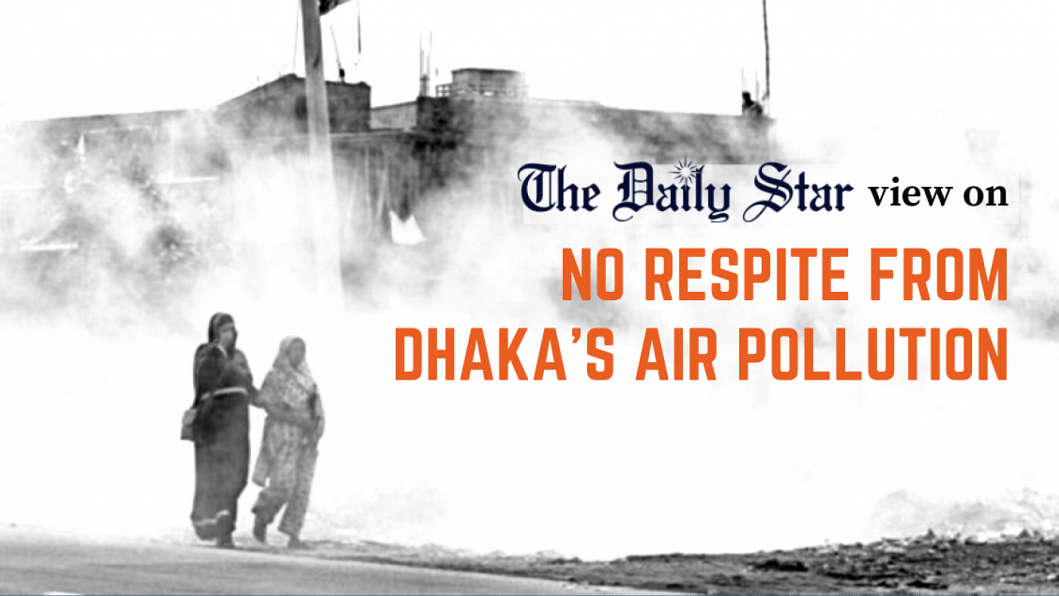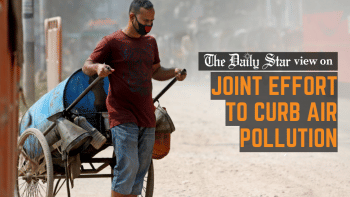Why is air pollution still a non-issue?

It's disturbing to see the massive decline in the quality of air in Dhaka and nearby cities in January. In Dhaka, according to a report, air quality has been consistently poor throughout the month, reaching "dangerous" levels on all but one of the first 24 days. Even on Monday, Dhaka recorded an air quality index (AQI) score of 263, thus making it to the top of the global list of cities with the worst air. Meanwhile, the air in Narayanganj has apparently become even more dangerous, with the AQI score there having averaged an unbelievable 400 or higher from the beginning of January until the 24th.
Such pollution has clearly raised the stakes much higher for the residents. Imagine, you're literally exposing yourself to a life-threatening danger simply by stepping out of your home and breathing in. How ironic that our first act outdoors is also probably our most consequential health-wise, even though its effects may not be immediately visible. These effects – causing the death of about 88,000 people every year in Bangladesh, and decreasing the average life expectancy of Dhaka residents by seven to eight years – are somehow still not serious enough to merit proper response from the authorities, especially those in charge of reducing pollution.
We must ask, why this apathy when so many people are dying or suffering from various health complications? This is totally inexcusable. Any other city in any developed country would have declared a state of emergency with health precautions if it faced the situation that Dhaka or Narayanganj is doing. The causes of air pollution are not unknown, nor is there a shortage of regulations to prevent it. Although a law is yet to be passed in this regard, the main problem is not lack of legal or institutional safeguards but lack of initiative and implementation.
As well as the failure to put a lid on the known sources of dust, smoke and fumes, there are wider issues at play that the authorities are refusing to address, including filling of wetlands, destruction of greenery, unplanned construction of buildings and structures, etc. Many of the infrastructure projects that have been taken up over the last decade have hugely impacted the environmental health of the country. Can we stop air pollution without addressing these wider policy issues? Will we continue to indulge in self-harm by prioritising only our material progress?
However, the threat of air pollution can no longer be ignored, given its alarming level which seems to be getting progressively worse by the day. We urge the authorities to take this issue with the seriousness it deserves. Given the present level of pollution, with the summer knocking on the door, they must undertake urgent steps to tackle major air pollutants and other contributing factors, and also hold to account the relevant agencies for their failure.


 For all latest news, follow The Daily Star's Google News channel.
For all latest news, follow The Daily Star's Google News channel. 








Comments